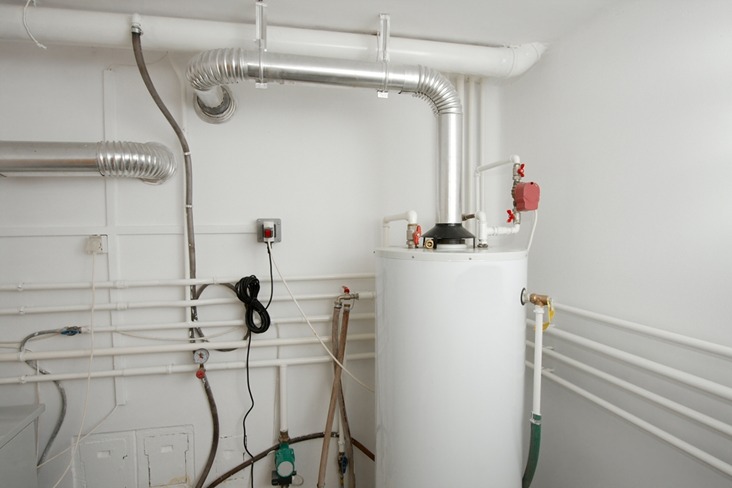The Future of Hot Water Systems: Trends and Innovations
Hot water systems have become an indispensable part of both residential and commercial infrastructures. As our daily lives continue to demand higher efficiency and sustainability, the evolution of these systems is crucial. Modern hot water systems are designed not only to provide consistent and reliable hot water but also to optimize energy consumption and reduce environmental impact. In cities like Brisbane, where energy efficiency and sustainability are highly prioritized, advancements in hot water systems are particularly relevant. Whether for residential homes, commercial buildings, or industrial facilities, a well-designed hot water system ensures a seamless supply of hot water, meeting the diverse needs of its users.
The traditional hot water systems, primarily consisting of storage tank heaters, have served us well for decades. However, as technology progresses, newer systems that offer improved performance and greater energy efficiency are emerging. Today’s hot water systems incorporate advanced materials, cutting-edge technologies, and smart features that enhance their functionality and user experience. These modern systems are designed to adapt to varying usage patterns, ensuring that hot water is available when needed without unnecessary energy wastage.
In this article, we will explore the latest trends and innovations shaping the future of hot water systems. From smart technologies and sustainable solutions to the integration of renewable energy sources, we will delve into the transformative changes that are revolutionizing how we access and use hot water. Whether you are a homeowner looking to upgrade your current system or a business seeking efficient solutions, understanding these advancements will help you make informed decisions about your hot water system in Brisbane.
Emerging Technologies in Hot Water Systems
The landscape of hot water systems is undergoing a significant transformation, driven by rapid technological advancements and the increasing demand for energy-efficient solutions. These innovations are poised to revolutionize how we heat water, offering enhanced performance, convenience, and sustainability. Here, we explore some of the most promising emerging technologies in hot water systems.
Smart Hot Water Systems with IoT Integration
One of the most exciting developments in hot water systems is the integration of smart technology and the Internet of Things (IoT). These systems allow users to remotely monitor and control their hot water usage through smartphones or other connected devices. By leveraging real-time data and advanced analytics, smart hot water systems can optimize energy consumption, reduce waste, and provide predictive maintenance alerts. This ensures that the system operates efficiently and extends its lifespan, ultimately saving users money on energy bills and repair costs.
Advanced Materials and Design Improvements
Innovations in materials science and engineering are leading to significant improvements in the design and construction of hot water systems. Modern systems are now being built with advanced materials that enhance thermal insulation and reduce heat loss. These improvements contribute to greater energy efficiency and faster heating times. Additionally, compact and space-saving designs are becoming more prevalent, making it easier to install hot water systems in a variety of settings, from small apartments to large industrial facilities.
Tankless and Hybrid Hot Water Systems
Tankless water heaters, also known as on-demand water heaters, are gaining popularity due to their energy efficiency and convenience. Unlike traditional storage tank heaters, tankless systems heat water only when needed, eliminating the energy losses associated with maintaining a large volume of hot water. This results in lower energy consumption and reduced utility bills. Hybrid hot water systems, which combine the features of both tankless and traditional storage heaters, are also emerging as a versatile solution. These systems offer the benefits of on-demand heating while maintaining a small reserve of hot water for immediate use, providing a balance between efficiency and convenience.
Heat Pump Water Heaters
Heat pump water heaters represent another significant advancement in hot water technology. These systems work by extracting heat from the surrounding air or ground and using it to heat the water. This process is highly efficient, as it uses less electricity compared to conventional electric water heaters. Heat pump water heaters are particularly effective in moderate to warm climates, where they can achieve substantial energy savings and reduce greenhouse gas emissions.
Solar Water Heating Systems
Harnessing solar energy for water heating is an environmentally friendly and cost-effective solution. Solar water heating systems use solar collectors installed on rooftops to capture and convert sunlight into heat. This heat is then transferred to the water, reducing the reliance on traditional energy sources. While the initial installation cost of solar water heating systems can be higher, the long-term savings on energy bills and the positive environmental impact make them a worthwhile investment.
As these emerging technologies continue to evolve, they promise to deliver significant improvements in the efficiency, performance, and sustainability of hot water systems. By staying informed about these innovations, consumers and businesses can make better choices that align with their energy needs and environmental goals.
Sustainability and Energy Efficiency
The quest for sustainability and energy efficiency is reshaping the hot water systems industry. As environmental concerns become more pressing and energy costs continue to rise, both consumers and manufacturers are prioritizing green technologies and practices. This section explores the various ways hot water systems are evolving to become more sustainable and energy-efficient.
Eco-Friendly Hot Water Systems Powered by Renewable Energy Sources
Renewable energy sources are at the forefront of the shift towards sustainable hot water systems. Solar water heaters, which utilize the sun’s energy to heat water, are becoming increasingly popular. These systems significantly reduce greenhouse gas emissions and lower energy costs by harnessing an abundant and free energy source. Similarly, geothermal heat pump systems use the stable temperatures of the earth to heat water, offering an efficient and sustainable alternative to conventional electric or gas water heaters.
Innovations in Energy Storage and Heat Pump Technologies
Energy storage innovations are crucial for enhancing the efficiency of hot water systems. Advanced thermal storage solutions allow for the capture and storage of excess energy produced during off-peak hours, which can then be used to heat water during peak demand times. This not only balances the load on the energy grid but also reduces costs for consumers. Heat pump technologies have also seen significant advancements. Modern heat pump water heaters are designed to extract heat from the air or ground more efficiently, making them a viable option even in colder climates. These systems use up to 60% less electricity compared to traditional electric water heaters, making them an environmentally friendly choice.
Government Incentives and Regulations Promoting Energy-Efficient Systems
Governments worldwide are implementing policies and regulations to encourage the adoption of energy-efficient hot water systems. Incentives such as tax credits, rebates, and low-interest loans are available to homeowners and businesses that invest in energy-efficient technologies. In addition to financial incentives, stricter building codes and standards are being enforced to ensure that new constructions and renovations include energy-efficient hot water systems. These regulations are driving innovation and adoption, making sustainable hot water solutions more accessible and affordable.
Eco-Friendly Materials and Manufacturing Processes
The push for sustainability extends beyond the operation of hot water systems to their manufacturing processes and materials. Companies are increasingly using eco-friendly materials that have a lower environmental impact. For example, recycled metals and plastics are being incorporated into the production of hot water systems. Additionally, manufacturers are adopting greener production practices, such as reducing waste, conserving water, and minimizing energy consumption during manufacturing. These efforts contribute to the overall sustainability of hot water systems, from production to end-of-life disposal.
Consumer Awareness and Demand for Sustainable Solutions
Consumer awareness and demand for sustainable products are also driving the market towards greener hot water systems. As people become more conscious of their environmental footprint, they are seeking out products that align with their values. This shift in consumer behavior is prompting manufacturers to prioritize sustainability in their product designs and marketing strategies. Educating consumers about the benefits of energy-efficient and eco-friendly hot water systems is crucial for driving widespread adoption and creating a more sustainable future.
The move towards sustainability and energy efficiency in hot water systems is a multi-faceted approach that encompasses technology, policy, manufacturing, and consumer behavior. By embracing these advancements, we can reduce our environmental impact, lower energy costs, and create a more sustainable future for generations to come.
Future Trends in Hot Water Systems
The hot water systems industry is on the brink of transformative changes, driven by advancements in technology, increasing environmental consciousness, and evolving consumer expectations. This section delves into the future trends that are set to shape the hot water systems landscape, highlighting the innovations that will redefine how we access and utilize hot water.
Predictive Maintenance and AI-Driven Performance Optimization
Artificial intelligence (AI) and machine learning are revolutionizing predictive maintenance in hot water systems. By analyzing data from sensors and usage patterns, AI can predict potential system failures before they occur, allowing for timely maintenance and reducing downtime. This proactive approach not only extends the lifespan of hot water systems but also enhances their efficiency. AI-driven performance optimization ensures that systems operate at peak efficiency, adjusting settings in real-time based on usage and environmental conditions. This reduces energy consumption and operational costs, providing a seamless and efficient hot water supply.
Integration with Smart Home Ecosystems
The integration of hot water systems with smart home ecosystems is a trend that will continue to gain momentum. Smart home devices and systems, such as voice assistants and home automation platforms, allow users to control and monitor their hot water systems remotely. This integration enhances convenience and energy efficiency, enabling users to schedule heating times, monitor energy usage, and receive alerts about potential issues. For instance, homeowners can use their smartphones to turn on their water heaters before arriving home, ensuring hot water is available when needed without wasting energy.
Advancements in Water Heating Technologies
Continuous advancements in water heating technologies are driving the development of more efficient and environmentally friendly hot water systems. Innovations such as magnetic induction heating, which uses electromagnetic fields to heat water, promise faster heating times and lower energy consumption. Additionally, advancements in nanotechnology are leading to the development of coatings and materials that improve heat transfer and reduce heat loss. These technological breakthroughs will result in hot water systems that are not only more efficient but also more durable and reliable.
Personalization and Customization
Future hot water systems will offer greater personalization and customization to meet the diverse needs of consumers. Systems will be designed to cater to specific usage patterns and preferences, providing tailored solutions for different households and businesses. For example, some systems may prioritize rapid heating for large families, while others may focus on energy conservation for environmentally conscious users. Customizable settings and user-friendly interfaces will allow individuals to optimize their hot water systems based on their unique requirements, enhancing both comfort and efficiency.
The Impact of Advancements on the Market
The ongoing advancements in hot water systems are expected to have a significant impact on the market. As technologies become more advanced and accessible, the demand for traditional hot water systems is likely to decline. Consumers will increasingly seek out systems that offer better performance, energy efficiency, and smart features. This shift will drive manufacturers to innovate and differentiate their products, leading to a more competitive and dynamic market. Additionally, the increased focus on sustainability will encourage the development of eco-friendly systems that align with global efforts to reduce carbon emissions and combat climate change.
The future of hot water systems is bright, with numerous innovations set to transform the industry. From AI-driven maintenance and smart home integration to advancements in heating technologies and personalized solutions, these trends will redefine how we experience hot water. By staying abreast of these developments, consumers and businesses can make informed decisions that enhance their comfort, efficiency, and sustainability.
Conclusion: Preparing for the Future of Hot Water Systems
As we look ahead, the hot water systems industry is poised for significant transformations that promise to enhance efficiency, sustainability, and user experience. The innovations and trends we have explored highlight a future where hot water systems are smarter, more sustainable, and tailored to meet the specific needs of consumers and businesses alike.
Summary of Key Trends and Innovations
The integration of smart technologies, such as IoT and AI, will revolutionize how we monitor and maintain hot water systems, ensuring optimal performance and energy efficiency. The adoption of renewable energy sources and advancements in materials and design will further drive the development of eco-friendly solutions, reducing our environmental footprint. Emerging technologies like tankless and hybrid systems, heat pumps, and solar water heaters will offer diverse options to cater to various preferences and usage patterns.
The Importance of Staying Updated with the Latest Advancements
In this rapidly evolving landscape, staying informed about the latest advancements is crucial. Whether you are a homeowner, a business owner, or an industry stakeholder, understanding these innovations can help you make better decisions about your hot water system investments. By keeping up with new technologies and market trends, you can ensure that your system is not only efficient and reliable but also aligned with sustainability goals.
Recommendations for Consumers and Industry Stakeholders
For consumers, investing in modern hot water systems can lead to significant cost savings and improved comfort. Consider systems that offer smart features, energy efficiency, and the potential for integration with renewable energy sources. Additionally, take advantage of government incentives and rebates that support the adoption of energy-efficient technologies.
For industry stakeholders, embracing these trends and innovations is essential for staying competitive. Manufacturers should focus on developing products that prioritize sustainability and user convenience. Service providers should invest in training and tools to support the maintenance and installation of advanced systems. Collaborating with technology developers and staying abreast of regulatory changes will also be key to success in this dynamic market.
Final Thoughts
The future of hot water systems is undoubtedly exciting, with numerous opportunities for innovation and improvement. By embracing the latest trends and technologies, we can create a more efficient, sustainable, and comfortable world. Whether through smart home integration, renewable energy adoption, or advanced materials and designs, the hot water systems of tomorrow will play a vital role in our daily lives and our efforts to build a greener future.
In conclusion, preparing for the future of hot water systems involves staying informed, making smart investments, and supporting innovations that drive sustainability and efficiency. As we move forward, these efforts will ensure that we can enjoy reliable and eco-friendly hot water solutions for years to come.
Keep an eye for more news & updates on Glamour Headline



